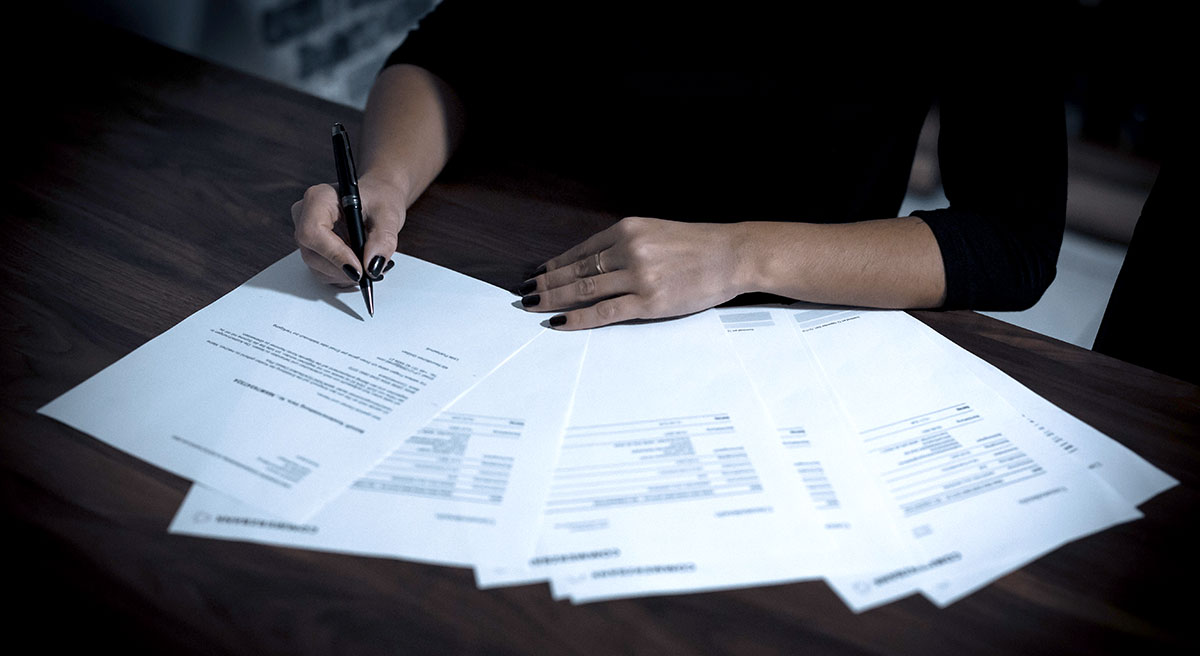
Navigating Lease Renewals: Tips for Tenants and Landlords
Lease renewals are a crucial aspect of the rental process that often goes overlooked. However, they hold immense importance for both tenants and landlords alike. A lease renewal can determine whether a tenant stays in their current rental property or looks elsewhere for housing.
For landlords, the renewal can either lead to the retention of reliable tenants or the need to find new occupants. So, let us at Reno Property Management delve into the intricacies of lease renewals, providing insights and tips for tenants and landlords to make informed decisions and foster positive landlord-tenant relationships in Las Vegas.
Tenant’s Perspective
1. The Importance of Planning Ahead
Tenants should consider lease renewals well in advance to ensure a smooth transition from one lease term to another. Waiting until the last minute can lead to uncertainty and unnecessary stress. Therefore, it’s essential to plan and evaluate whether renewing the lease is the right choice.
Renewing a lease can offer stability, as tenants can continue living in a familiar environment without the hassle of moving. It may also lock in the current rental rate, protecting against potential rent increases. Also, keep in mind that reliable tenants who pay rent on time, take care of the property, and follow the lease terms are always a “better choice” for the landlords.

For a tenant, it’s important to evaluate whether renewing the lease is the right choice.
2. Negotiation Strategies for Tenants
Tenants can negotiate various aspects of the lease during the renewal process. To maximize the benefits of lease renewals, consider the following strategies:
- Gathering information about the rental market: Research local market conditions to determine if your current rent is competitive. This information can be a valuable bargaining tool during negotiations.
- Identifying key terms for negotiation: Prioritize the terms that matter most to you, such as rent, lease duration, or included amenities. Be prepared to discuss these aspects with your landlord.
- Communicating with the landlord: Open and respectful communication is key. Initiate discussions with your landlord well in advance of the lease expiration date. Express your interest in renewing and discuss any proposed changes or concerns.
3. Preparing for Potential Changes
When renewing a lease, tenants should be prepared for potential changes, including rent increases and lease modifications.
- Rent increases: Landlords may choose to raise the rent while renewing a lease to account for inflation or increased expenses. Tenants should be aware of their rights and local regulations regarding rent increases and be prepared to negotiate if necessary.
So, if you are a tenant looking for a rental on a budget, you might want to choose the right moment to relocate. The best time to move for renters depends on the market. And since the housing market is everchanging, renters should discuss potential rent increases in the future with their landlords. - Lease modifications: Landlords may propose changes to the lease agreement during the renewal process. Tenants should carefully review these modifications and negotiate acceptable terms with both parties.
Landlord’s Perspective
1. Evaluating Tenant Retention
From a landlord’s perspective, retaining good tenants can be highly advantageous. Tenant retention reduces turnover costs, such as cleaning, advertising, and screening for new tenants. Therefore, landlords should assess whether retaining their current tenants is in their best interest.

Tenants should consider lease renewals well in advance.
2. Preparing for Lease Renewals
To ensure a smooth lease renewal process, landlords should take certain steps:
- Assessing market conditions: Landlords should evaluate the local rental market to determine if rent adjustments are necessary to remain competitive.
- Identifying lease terms to modify or maintain: Review the current lease terms and assess whether any changes are needed. Consider tenant feedback and market trends when making these decisions.
3. Communicating with Tenants
Clear and timely communication with tenants is crucial during the lease renewal process:
- Providing lease renewal offers: Landlords should provide tenants with lease renewal offers well before the current lease expires. This gives tenants ample time to consider the offer and negotiate if necessary.
- Handling negotiations: Landlords should be open to negotiating lease terms with tenants. Flexibility and willingness to compromise can foster positive landlord-tenant relationships.
Lease Renewal Process
Understanding the lease renewal process is essential for both tenants and landlords. Key considerations include:
Common Timelines and Deadlines
Lease renewal timelines and deadlines can vary depending on the type of lease and local regulations. It’s essential to be aware of these timeframes to avoid misunderstandings.
Required Documentation
Both tenants and landlords should understand all the rules and regulations and prepare and sign the required documentation accurately. This includes the new lease agreement, amendments, and other relevant paperwork.
Rent Adjustments and Lease Modifications
If there are rent adjustments or lease modifications, these should be clearly outlined in the renewed lease agreement, ensuring that both parties agree and understand the terms.
Tips for moving into a new rental home
Moving to a new rental home is an exciting yet intricate process that requires meticulous planning and preparation, just as Number 1 Movers Canada says from their experience. Whether upsizing, downsizing, or simply seeking a change of scenery, a well-thought-out relocation plan can make all the difference.
From sorting and packing your belongings to coordinating logistics and ensuring a seamless transition, the key to a successful move lies in careful planning and attention to detail.

Both tenants and landlords should ensure to understand all the rules and regulations.
So, before you embark on this new chapter of your life, remember that a well-executed moving plan can turn into a manageable and enjoyable experience.
Legal Considerations and Regulations
If you are moving into a new place or renting one to tenants, understanding the legal aspects of lease renewals is crucial. To avoid potential conflicts and disputes, consider the following:
- Tenant Rights and Protections. Tenants have rights and protections during the lease renewal process. Landlords must know and respect these rights, including the right to a reasonable notice period before lease termination.
- Anti-Discrimination Laws. Landlords must adhere to federal, state, and local anti-discrimination laws and ensure lease renewal decisions are not based on discriminatory factors.
- State and Local Regulations. Local regulations may impose specific requirements or restrictions on lease renewals. Both tenants and landlords should be familiar with these regulations and comply with them.
- Handling Disputes and Conflicts. In case of disputes or conflicts during the lease renewal process, tenants and landlords can seek resolution through mediation or legal channels. Understanding the available options is essential to protect one’s rights.
In Conclusion
In conclusion, the renewal of the lease is a critical aspect of the tenant-landlord relationship, and navigating it requires careful consideration and communication. Tenants should plan, negotiate effectively, and be prepared for potential changes, while landlords should evaluate tenant retention, prepare for renewals, and communicate clearly.
Understanding the lease renewal process legal considerations, and exploring alternative options can lead to successful and mutually beneficial lease renewals.